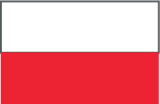Poland
Poland
The objective of Poland’s development cooperation, as defined in the Programme, is to create conditions for sustainable development of partner countries. This aim is pursued in particular by promoting and consolidating democracy and respect for human rights, helping create modern and efficient state institutions, promoting sustainable social and economic development, undertaking actions which contribute to reducing poverty and improving health conditions and raising the level of education and professional qualifications of the population of partner countries.
Solidarity is both the driving force behind and the objective of Poland’s involvement in development cooperation. The Programme additionally lays down the following overriding objectives:
- Subsidiarity, taking into account social, cultural, economic and political characteristics of local communities, and seeking the greatest possible inclusion of local partners and beneficiaries in deciding about their own development;
- Coordinating actions with other donors;
- Improving aid effectiveness, in particular by adhering to the principles of alignment, harmonization, managing for development results, transparency and mutual accountability;
- Respecting and protecting human rights, by safeguarding equal opportunities, counteracting any forms of discrimination, in particular based on ethnicity, religion, disability or sex, and fostering empowerment of women;
- Concern for natural environment and sustainable management of natural resources;
- Ensuring coherence between programmes and government strategies and the objectives and priorities of development cooperation.
Poland’s development cooperation framework is specified in the Development Cooperation Act that came into force on 1 January 2012.
According to the Development Cooperation Act:
- Polish development cooperation is conducted on the basis of a multiannual programme approved by the Council of Ministers;
- The multiannual programme defines the objectives as well as geographical and thematic priorities of Polish development cooperation for a period of a minimum of four years; and
- Every year, the Minister of Foreign Affairs prepares an annual development cooperation plan defining the activities to be carried out in a given year, the modalities and the funds available.
Poland’s first Multiannual Development Cooperation Programme2 was adopted by the Council of Ministers on 20 March 2012. It is also Poland’s response to international challenges and obligations arising from documents regulating development cooperation, including: the Treaty on the Functioning of the European Union (Articles 208 to 211), the Millennium Declaration, the Paris Declaration on Aid Effectiveness, the European Consensus on Development, the Accra Agenda for Action, as well as the Eastern Partnership and the European Development Fund. It also takes into account the conclusions arising from aid programmes implemented by Poland in recent years.
The geographical priorities are divided into two groups: Eastern Partnership and selected countries of Africa, Asia and Middle East (including countries of East Africa, North Africa, Afghanistan, Kirgizstan, Tajikistan as well as West Bank and Gaza Strip). 60% of the bilateral aid managed by the Ministry of Foreign Affairs and its external partners is allocated annually to the Eastern Partnership countries, 70% of which is directed towards activities supporting democratization and transition processes.
The bulk of Polish aid is directed to Africa. As far as Polish bilateral assistance is concerned, Poland continues to provide ODA to the African countries through Polish embassies (responsible for implementing projects financed from the so-called Small Grant Fund in these countries). Moreover, in 2011, Poland continued to carry out projects in Angola and other countries in Sub-Saharan Africa. In 2012, Poland provided ODA to East African countries (Burundi, Ethiopia, Kenya, Ruanda, Somalia, Southern Sudan, Tanzania, Uganda) to support their sustainable development, and to North African countries (Tunisia, Libya) to assist in the ongoing transformation processes.
Poland’s ODA has been stagnating since 2008, and reached EUR 300 million in 2011, representing 0.08% of its GNI.
Agencies
Principal official agency responsible for TCB assistance to developing countries
Al. J. Ch. Szucha 23, 00-580 Warsaw, Poland Tel.: +48 22 523 90 00
The Ministry of Foreign Affairs (MFA) is the main focal point for development cooperation strategy and policy leadership within the national system is the Development Cooperation Department of the Ministry of Foreign Affairs. The Department manages about 10% of Poland’s ODA. The MFA is therefore both the policy maker for development cooperation and as well as the coordinator of a host of actors and agencies that are obliged, under the new Act, to consult with it their plans regarding development aid financed with their own financial resources.
Other government and official agencies with responsibilities directly relevant to TCB
In countries with specific political conditions Poland may conduct development cooperation activities aimed at supporting democracy via the Polish Foundation for International Development Cooperation (Solidarity Fund).
Other offical and NON-governmental organizations involved
Aid to refugees

